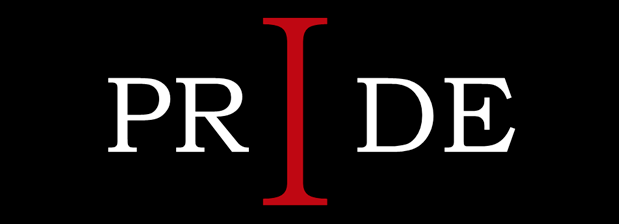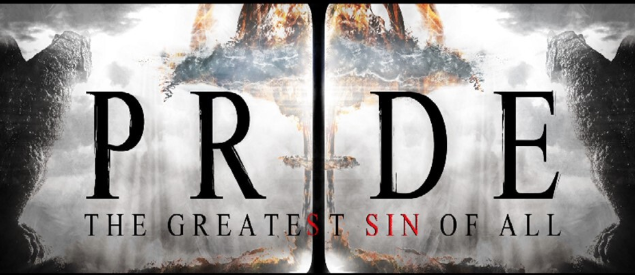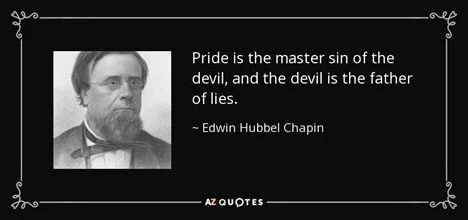Humility Month
"Clothe yourselves, all of you, with humility toward one another, for 'God opposes the proud but gives grace to the humble.'”
- 1 Peter 5:5
Dear brothers and sisters in Christ,
G.K. Chesterton’s warnings on pride seems apt as we head into a month where it is celebrated and venerated in our country for any number of reasons and applications: “pride is the poison of every other vice.”
Chesterton elaborates on how pride elevates the evil of every other human shortcoming. “I believe this malady of pride will be found almost everywhere to be the reason of wrong and the rending of human fellowship. It is the poison of pride that has made the difference. Weaknesses that can be reverenced as weaknesses, can all be suddenly distorted into devilish shapes, and made to dance to devilish tunes, at the first note of this shrill and hollow reed [of pride].”
While this “hollow reed” might manifest in unblbical expressions of self-determined (instead of God-determined) lifestyles, self-declared (instead of Word-submitted) identities, and self-entitled (instead of Spirit-inspired) actions, the root can be traced all the way back past the current “presenting issues” to the Garden of Eden and the first sin. And as we carefully discern the permutations in culture around us that are in opposition to God’s Word, we must also check our own hearts for our own misguided manifestations. As the psalmist pleads: “…see if there be any grievous way in me, and lead me in the way everlasting!” - Psalm 139:4
In selecting a word for an anthem, a celebration, a milestone, or a movement there is perhaps no better term that could have been co-opted. “50 years of Pride” was the slogan a few years ago, and yet the truth is we should all give ourselves a lot more credit: we are, at least, at 6,000 years and counting. And not just counting, but indeed counting down.
“Pride goes before destruction, and a haughty spirit before a fall.” – Proverbs 16:18
I can’t do anything this month without seeing some positive elevation of pride. I go to make a purchase on Amazon and see a banner ad for pride, I go to Netflix and a whole row of pride recommendations come up. My XBox suggests I make donations to organizations honoring pride. Wherever I go, pride is literally in my face. But the reality is, although the five-letter word has been appropriated to mean one specific thing recently, the phenomenon communicates a more tragic, general reality: the inverted celebration of something wicked as laudable.
“The fear of the Lord is hatred of evil. Pride and arrogance and the way of evil and perverted speech I hate.” – Proverbs 8:13
Since the first man and woman, and the very first sin, pride has been humankind’s downfall. The serpent told us we could “be like God” instead of bowing before Him. The particular sin is secondary (sexual immorality is simply one manifestation of self-idolatry). Pride in ourselves – making our identity primary, choosing self-identity instead of God-shaped identity, has been the doom we have brought on an entire world. Bottom line? God’s word has a completely different view of pride than modern culture.
(for a more specific look at marriage and sexuality issues, check out the Great Lakes Catechism on Marriage and Sexuality: a great Q&A on God's design for these matters.)
“When pride comes, then comes disgrace, but with the humble is wisdom.” – Proverbs 11:2
The gospel humbles us. It brings good news of salvation, but the first thing it makes us swallow is that the pride we have in ourselves is wicked. We have, since birth, all distorted God’s image, perverted righteousness, worshiped ourselves instead of the only one worthy of it… and yet our culture tells us to hoist that self-love up on a banner and wave it with joyous abandon. Instead of submitting ourselves to God, acknowledging what His Word says is sin and putting those part of our lives to death, the world tells us to put them on display. With pride.
“For the sin of their mouths, the words of their lips, let them be trapped in their pride.” – Psalm 59:12
In the 1987 movie Wall Street, Michael Douglas’ character Gordon Gekko declared “Greed is good”. His character was not to be lauded, yet something equally deplorable is now on the lips of not just contemporary culture, but even many professing Christendom: we declare “pride is good”… the very thing which the Bible condemns, and sensible men from St. Augustine to C.S. Lewis have wisely echoed.
“Pride is the beginning of sin. And what is pride but the craving for undue exaltation? And this is undue exaltation – when the soul abandons Him to whom it ought to cleave as its end, and becomes a kind of end to itself.” ― Augustine of Hippo, City of God
In other words, we abandon God as our end and, instead, worship ourselves. Even a silly sitcom like Community surprisingly demonstrates this level of self-awareness. In one episode Joel McHale’s pride-filled character, while claiming no religion, is rebuked by a character played by none other than John Oliver: “While claiming to have no religion, you were actually devoutly worshipping yourself.” This is the heart and reality of human pride.
No professing Christian should advocate pride. The Christian may boast… in the Lord. The Christian may take joy in one’s accomplishments… knowing the glory goes to God. Instead, we find even in churches remaining orthodox on human sexuality issues, a kind of verbal accommodation toward using the term pride as a good thing… or we use words like “self-esteem” when we should articulate carefully that our worth is found only in relationship to our Lord and Savior.
“The Lord preserves the faithful but abundantly repays the one who acts in pride.” – Psalm 31:23
Worse, some professing Christians virtue signal and accommodate the masses by cheering, celebrating, affirming and endorsing those who would use the term – and its modern application – as though it were a mindset and state to be cherished. In Malachi 2, one of the things the prophet tells God’s people that God has against them is that they’re saying “Everyone who does evil is good in the sight of the LORD, and he delights in them.” Even more specific, when we look at the sins people are taking pride in this month, God doesn’t just condemn those actions, but also those who “give approval to those who practice them.”– Romans 1:32
No matter what form of expression it takes, God has never celebrated our pride or encouraged us to exult in it. Conversely, He rightly condemns us for it, and only in His mercy has he provided a plan of mercy and grace, by which humans may be humbled and repent of that utmost arrogance.
“And the haughtiness of man shall be humbled, and the lofty pride of men shall be brought low, and the Lord alone will be exalted in that day.” – Isaiah 2:17
Pride has been around for over 6,000 years, parading itself around in variant form. The notion of a “pride month” does not even come close to acknowledging pride’s true, pervasive presence or power. Admitting sin and our need for repentance, redemption, and sanctification is a constant stumbling block for prideful people. It is much easier, in the short term, to build a monument to our sins and get a chorus of well-wishers to validate them, so we can almost (almost) convince ourselves we need not turn from them.
“For from within, out of the heart of man, come evil thoughts, sexual immorality, theft, murder, adultery, coveting, wickedness, deceit, sensuality, envy, slander, PRIDE, foolishness. All these evil things come from within, and they defile a person.” – Jesus, Mark 7:21-23
As Jesus said above: pride is evil, and pride defiles. It is not just in our face everywhere we turn this last month: it is in our hearts. Constantly. Perhaps some of us will hear and heed Jesus’ words, realizing our need to repent in the months ahead. That begins by first recognizing pride for the evil that it is, and then questioning ALL the manifestations of self-identity and subsequent actions we have been justifying by taking pride IN them.
“God opposes the proud but gives grace to the humble.” – James 4:6
By His grace, our months of pride may be cleansed and our life – here, and in eternity – may be marked by humility instead.
Grace and Peace,
Pastor James Harleman




